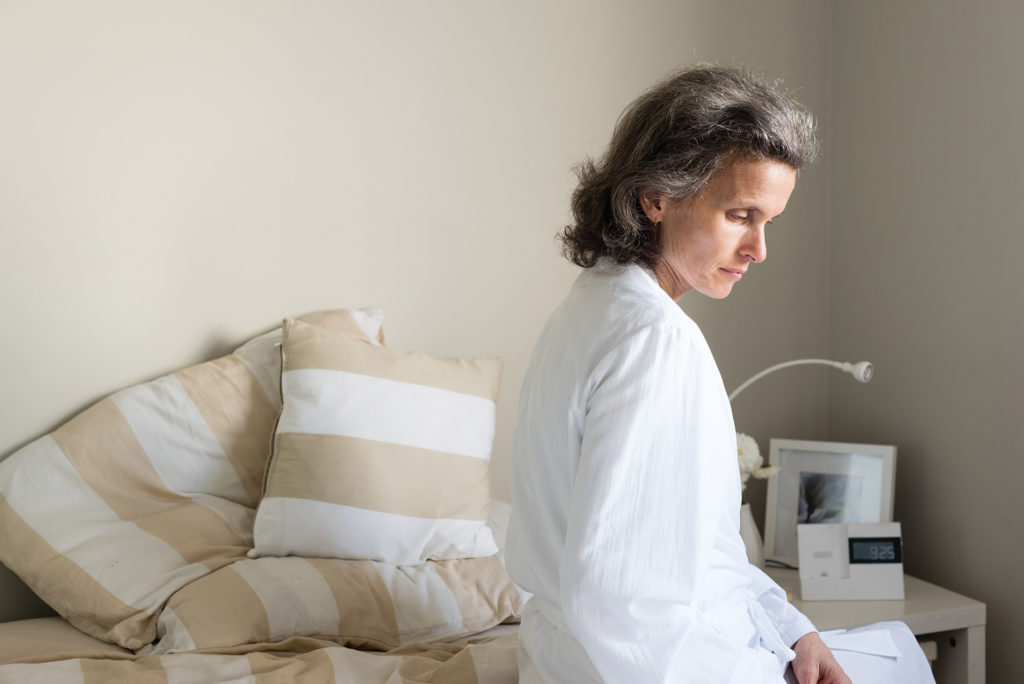What’s Sabotaging Your Sleep?

By Dr Nerina Ramlakhan, Silentnight’s sleep specialist
Dr Nerina Ramlakhan, Silentnight’s sleep specialist, has revealed how waking up in the small hours is one of the most common sleep complaints amongst tired professionals, and how an ancient survival mechanism could be the reason why so many Brits lie awake at night.
The average person wakes up around 10 times per night, according to recent sleep studies. Dr Nerina, who has spent over two decades studying sleep and helping to solve sleep problems, has shed light on why this happens so frequently, and what can be done to prevent it affecting sleep.
According to Dr Nerina, waking up is the most common sleep complaint and stretches back generations. The theory arises from the idea that humans have an ancient survival mechanism designed to guard against nocturnal threats. This habit dates back to our origins as a hunter-gatherer species, where it would be necessary to check for danger throughout the night.
While the types of danger experienced by our ancestors is very different to what we would associate as danger now, the same principle can still be applied. Research from Silentnight and the University of Leeds has revealed that 25 per cent of Brits are sleeping for only five or fewer hours per night.
However, Dr Nerina has revealed there is one simple mistake all Brits make that is preventing us from getting back to sleep once we have woken up – checking the time.
Dr Nerina explains: “Checking the time in the middle of the night is the single biggest disrupter of sleep, and I understand how tempting it can be, but trust me, if you break this habit you’ll find it much easier to drift back to sleep when you wake up.
“Over the years I’ve worked with countless people who report waking up in the night, and it’s more normal than you think. In fact, this is a problem many of my clients report. Waking up in the night is not an issue, it only becomes an issue when we begin to overthink and worry, which then makes it harder for us to fall asleep again, which is why I ban checking the time in the middle of the night.
“In my experience many people also have unhelpful beliefs about sleep, which can actually stop them from sleeping and affect the quality of their sleep.”
Here are some more of Dr Nerina’s unhelpful sleep beliefs which may be sabotaging your sleep:
“I need 7 or 8 hours of sleep to function”
Try not to fixate on how much sleep you are or aren’t getting. While it’s important to get enough sleep, there is far too much significance placed on the holy grail of 8 hours. Everyone’s sleep requirements are different and it’s unhelpful to focus on getting a set amount. The key is to pay attention to how you feel when you wake up. If you wake up feeling refreshed after five hours you’re probably getting enough sleep for you.
“I can catch up on lost sleep”
Do you go to bed late and then sleep later in the morning in an attempt to make up for lost sleep? Or sleep more at weekends and when you go on holiday? This belief that you can catch up could be seriously damaging your sleep pattern. While you can catch up to some extent, you can’t fully recover. Get into a good, regular routine if you want to really reap the healing benefits of sleep, and beat your sleep problems for good.
“Insomnia runs in my family or my sleep problem can’t be fixed”
You’re not alone if you believe that you are somehow carrying a ‘bad’ gene that’s stopping you from sleeping. But no such gene exists. It might be hard to hear but you need to stop wearing your sleep problems like a badge of honour and believing they’re unsolvable. Everyone can improve the way they sleep. When you start becoming more aware of your sleep, you’ll start to see how any sleep issues are probably due to bad habits that have been passed down through generations, rather than faulty genetics.
For advice on sleeping in the heat . . .








